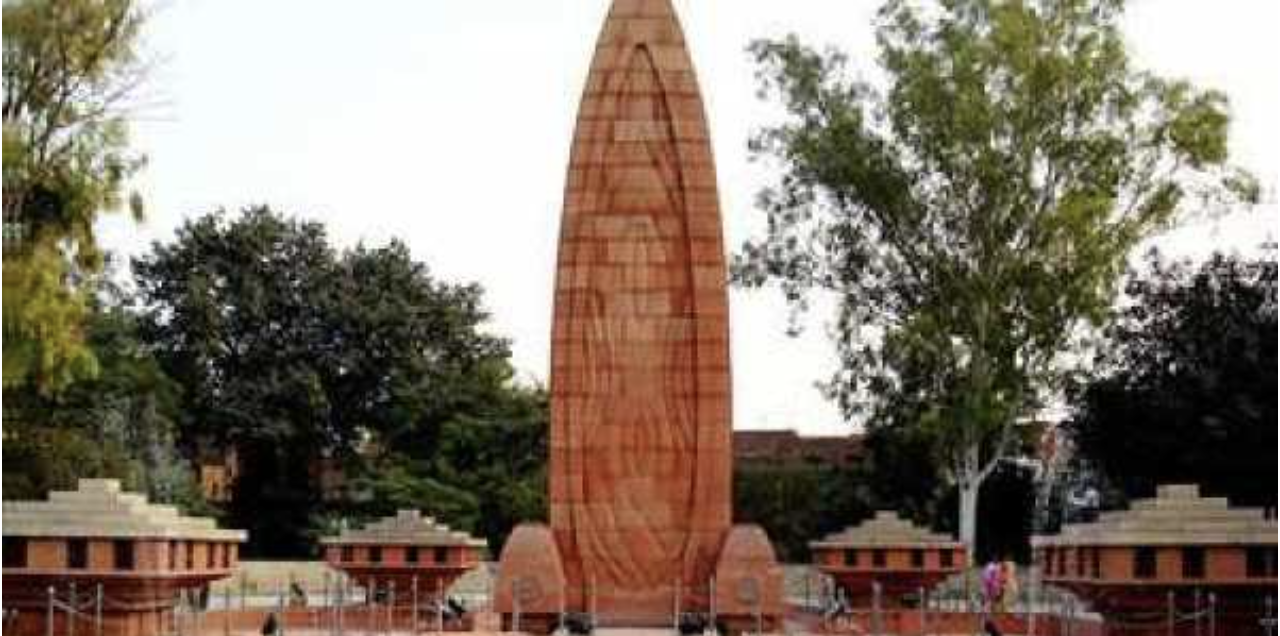Jallianwala Bagh is a place of pilgrimage for me: 'The Patient Assassin' author Anita Anand
Jallianwala Bagh is a place of pilgrimage for me: 'The Patient Assassin' author Anita Anandon Apr 14, 2021

 Yesterday (April 13), on the 101st anniversary of the massacre, Anand released the same book with a new name, Udham Singh: The Revenge of the Jallianwala Bagh, for the Indian audiences. Anand’s interest in the massacre is not just historical but also personal.
Luck favoured her grandfather who was saved by a whisker on that illfated day in 1919. Though she was born in London, England, her Punjabi Sikh parents had migrated to India shortly after the Partition, before making the UK their home. Her family’s origins can be traced to Khyber Pakhtunkhwa, Pakistan.
Excerpts:
Why reissue a book with a new name?
Here in Britain, where I live, the names Jallianwala Bagh and Udham Singh are unknown, while Reginald Dyer and Sir Michael O’Dwyer have largely been forgotten. The title The Patient Assassin, therefore, evoked intrigue and created interest here. In India, it feels only right to name the man at the center of his story. In a way, it is like bringing him home.
What explains your deep interest in Udham Singh’s life?
It is rooted in who I am. My teenage grandfather was at Jallianwala Bagh on April 13, 1919. Late for a meeting with a local scrap metal dealer, he left the picnic he was having with friends, telling them to save him something sweet for his return. He passed a column of armed soldiers, but had no idea where they were going. At the head of that column, he would later learn, was a man named Brigadier General Reginald ‘Rex’ Dyer. Everyone knows the rest. Around 20,000 civilians were at Jallianwala Bagh that day when Dyer and his men opened fire without warning or mercy. The youngest fatality was a six-month-old baby, the oldest a man in his eighties. My grandfather’s friends were among those slaughtered. Had he stayed, I would not be here today. Udham Singh was a similar age to my grandfather at that time, and I have always been drawn to his story, the man who avenged the dead that day. It took me years to separate the fact from the legend.
Yesterday (April 13), on the 101st anniversary of the massacre, Anand released the same book with a new name, Udham Singh: The Revenge of the Jallianwala Bagh, for the Indian audiences. Anand’s interest in the massacre is not just historical but also personal.
Luck favoured her grandfather who was saved by a whisker on that illfated day in 1919. Though she was born in London, England, her Punjabi Sikh parents had migrated to India shortly after the Partition, before making the UK their home. Her family’s origins can be traced to Khyber Pakhtunkhwa, Pakistan.
Excerpts:
Why reissue a book with a new name?
Here in Britain, where I live, the names Jallianwala Bagh and Udham Singh are unknown, while Reginald Dyer and Sir Michael O’Dwyer have largely been forgotten. The title The Patient Assassin, therefore, evoked intrigue and created interest here. In India, it feels only right to name the man at the center of his story. In a way, it is like bringing him home.
What explains your deep interest in Udham Singh’s life?
It is rooted in who I am. My teenage grandfather was at Jallianwala Bagh on April 13, 1919. Late for a meeting with a local scrap metal dealer, he left the picnic he was having with friends, telling them to save him something sweet for his return. He passed a column of armed soldiers, but had no idea where they were going. At the head of that column, he would later learn, was a man named Brigadier General Reginald ‘Rex’ Dyer. Everyone knows the rest. Around 20,000 civilians were at Jallianwala Bagh that day when Dyer and his men opened fire without warning or mercy. The youngest fatality was a six-month-old baby, the oldest a man in his eighties. My grandfather’s friends were among those slaughtered. Had he stayed, I would not be here today. Udham Singh was a similar age to my grandfather at that time, and I have always been drawn to his story, the man who avenged the dead that day. It took me years to separate the fact from the legend.

Anita Anand
Author
Authors
Book
book news
Books
dham Singh: The Revenge of the Jallianwala Bagh
Frontlist Book
The Patient Assassin
Udham Singh

.jpg)
.jpg)
.jpg)

.jpg)
.jpg)
.jpg)
.jpg)
.jpg)
.jpg)
.jpg)
.jpg)
.jpg)
.jpg)
.jpg)

.jpg)








Sorry! No comment found for this post.